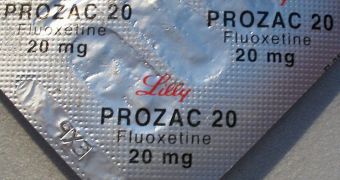Seniors who take newer generations of antidepressant medication are at an increased risk of suffering stroke, falls, and even death. The conclusion belongs to a study conducted by experts in the United Kingdom, who focused their attention on people above the age of 65.
University of Nottingham investigators say that their findings are applicable to selective serotonin reuptake inhibitors (SSRI) compounds, which make up the newest antidepressant drugs on the market.
For seniors, the team recommends the usage of tricyclic antidepressant (TCA) drugs, which have been in use far longer. Details of the study appear in the latest online issue of the top medical publication British Medical Journal (BMJ).
Using SSRI apparently puts seniors at a higher risk of suffering health complications including stroke, falls, fractures and epilepsy, so doctors should pay special attention when writing prescriptions for this age group.
One of the greatest concerns for the science team is that the effects of SSRI-based drugs on seniors have not been researched separately. In other words, safety studies were conducted on all age groups, not on the elderly specifically.
“We’ve found some evidence from our study that the older tricyclic antidepressants may be associated with lower risks of several adverse outcomes compared with newer antidepressants in older people diagnosed as having depression,” Nottingham researcher Carol Coupland, PhD, says.
“This was an unexpected finding, and so further research using other data sources is needed to confirm these findings as well as provide more evidence on the benefits of different antidepressants in this group of people,” she goes on to say.
The highest risks were produced by the drugs trazodone (brand name Desyrel), mirtazapine (Remeron) and venlafaxine (Effexor), the team reports. The most significant adverse results occurred 28 days after the treatment began, and also 28 days after people stopped taking the pills.
One of the reasons the team proposes for the different effects of SSRI and TCA is that the latter are usually prescribed in much smaller quantities than the former. This may go a long way towards explaining why they have fewer side effects.
Of the 1,398,359 prescriptions the team analyzed, 57 percent were for SSRI, 31 percent for TCA, 0.2 percent for monoamine oxidase inhibitors (MAOI) and 13.5 percent for other drugs, PsychCentral reports.

 14 DAY TRIAL //
14 DAY TRIAL //